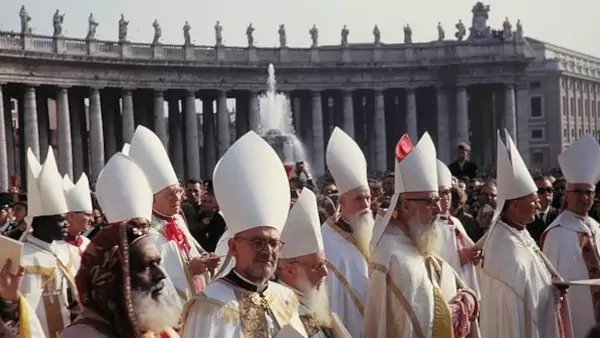The Council of Constantinople II (553) confirmed the condemnation of earlier heresies (concerning the Holy Trinity, Christology), while recalling the definitions made by the previous council. The heresies of Origen were condemned, as well as the three known ideas of Nestorianism. The real goal of reconciling Christians was not achieved because there were disagreements (Rome, Africa, Antioch). The three theological bishops belonging to the Antiochian school were condemned: Theodore of Mopsuestis († 428), Theodoret of Cyr († c. 466) and Ibas of Edessa († 457).
The Council of Constantinople III (680-681) confirmed the two wills of Christ, against monothelitism. Therefore, it was declared that there are two wills in Christ, just as He has two natures (i.e., being God and being human), even though He is one person and cannot be read, i.e., the incarnate Word (these are not mixed, do not change, and never separate but are distinct). [We also preach in Him (Christ) two natural wills or wills and two natural operations, without division, without commutation, without separation, without confusion, according to the teaching of the holy Fathers]. The Council of Nicaea II (787) demanded and defended the legitimacy of the use of and respect for painted images (Ikon) and statues in worship, according to the practice of the Church.








